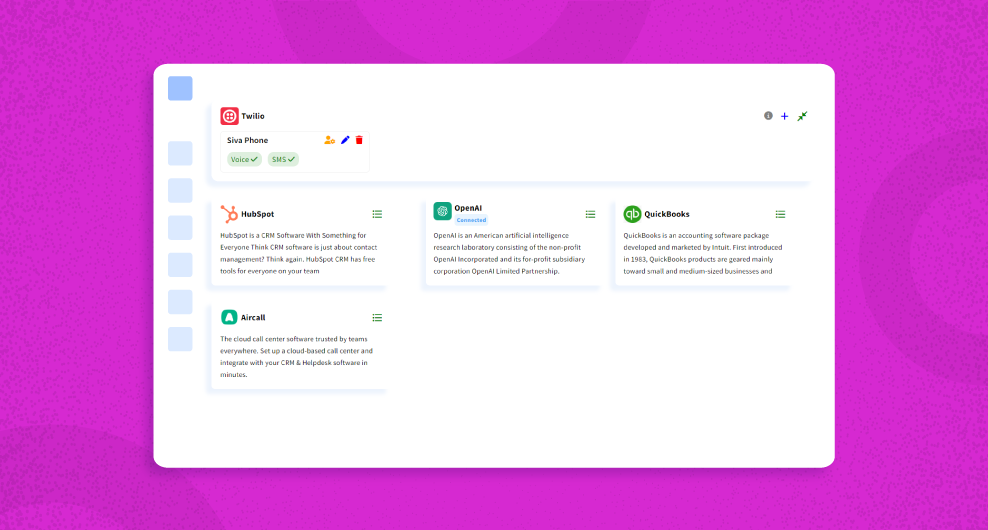Table of Contents
While email might not boast the most glamorous status in your tech toolkit, it remains a foundational channel for business correspondence, even long after its inception. Moreover, it holds a crucial role in the sales journey, serving as the linchpin for sales representatives to establish connections with potential clients, coordinate appointments, and undertake various other tasks.
Remarkably, research by McKinsey has revealed that email’s effectiveness in generating new sales surpasses that of Facebook or Twitter by nearly 40 times. Notably, studies also indicate that approximately 80 percent of individuals prefer being contacted by sales professionals through email. With statistics of this magnitude, it comes as no surprise that salespeople invest an average of 13 hours weekly in their email activities.
Imagine tapping into the potential of email without the exhaustive time and energy demanded by the creation, dispatch, and management of email communications. This possibility becomes attainable through the integration of CRM systems, which streamlines and automates email processes. Explore the synergy of a business email account, drip marketing, CRM automation, and CRM email marketing to unlock the full potential of your email strategy, making it a powerful and efficient tool for communication and customer engagement.
What is CRM email integration?
CRM email integration is the seamless combination of Customer Relationship Management (CRM) software with email platforms. In essence, it’s a technological solution that links a company’s CRM system with their email service, allowing for the efficient exchange of data and communication between the two.
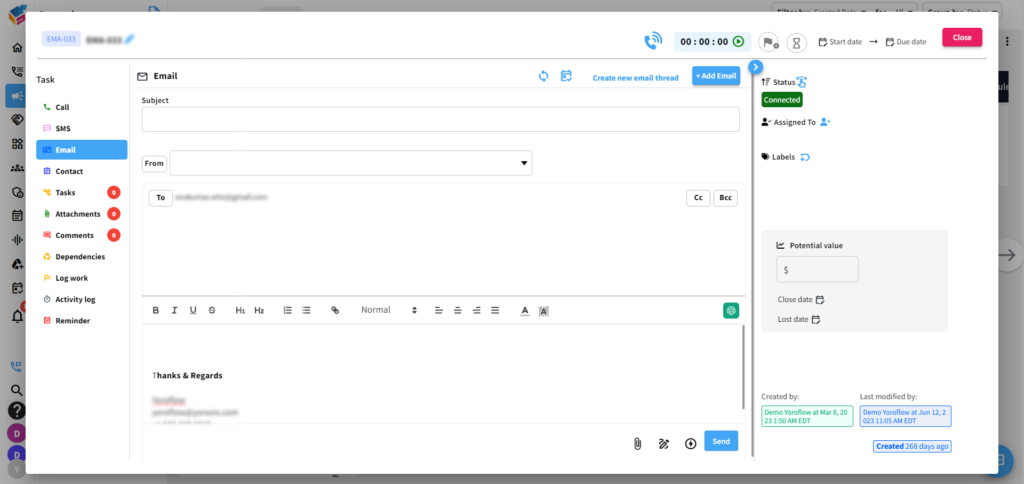
Benefits of CRM email integration
This integration offers several benefits:
- Streamlined Communication: CRM email integration enables users to send, receive, and manage emails directly from within the CRM system. This streamlines communication by centralizing all interactions and information in one place.
- Enhanced Data Management: Emails exchanged with clients or prospects are automatically associated with their respective CRM records. This ensures that all relevant correspondence and data are stored together, providing a holistic view of interactions.
- Automation: Routine tasks, such as logging emails or updating customer records, can be automated. This saves time and reduces the chances of manual errors.
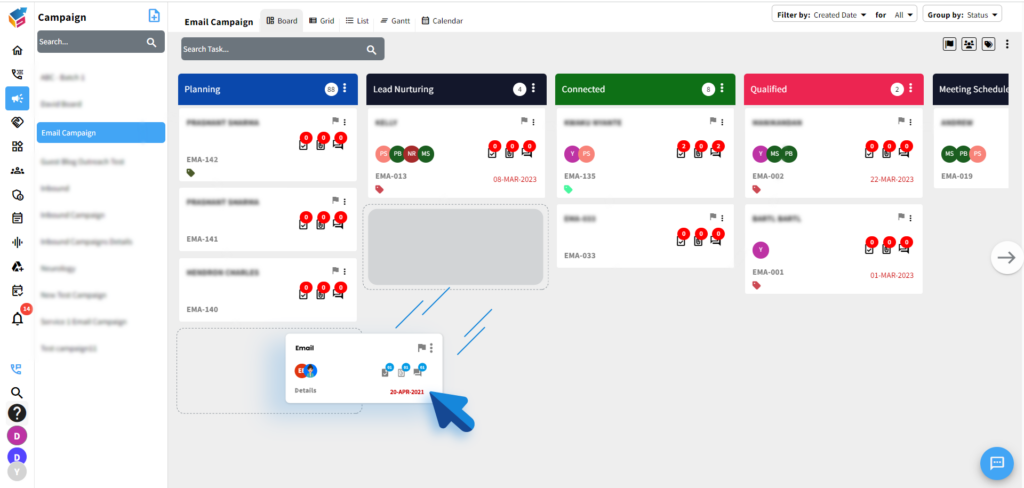
- Improved Follow-ups: Integration allows for setting reminders and triggers based on email interactions. This helps sales and support teams stay on top of follow-up actions.
- Analytics and Insights: Integration provides insights into email engagement, allowing businesses to gauge the effectiveness of their communication strategies.
- Personalization: Integration enables the use of CRM data to personalize email communications, enhancing customer engagement and relationships.
- Efficient Collaboration: Teams can collaborate better when email communication is linked to CRM records. This is particularly useful for sharing important client information.
- Tracking Sales and Leads: CRM email integration helps track email interactions related to sales and leads, contributing to a better understanding of customer behavior and preferences.
- Reporting and Metrics: Integrated systems can generate reports on email communication, helping companies assess performance and make informed decisions.
Overall, CRM email integration optimizes communication, data management, and workflow processes by synchronizing the power of CRM and email platforms, ultimately leading to improved customer relationships and business efficiency.
CRM email examples
Here are a few examples of how CRM email integration can be used in various business scenarios:
- Sales Follow-up Emails: After a sales call or meeting, a sales representative can automatically send a personalized follow-up email to the prospect from within the CRM. The email’s content can be tailored based on the details of the conversation, and the CRM can track when the email is opened, providing insights into the prospect’s level of interest.
- Customer Onboarding: When a new customer signs up for a service, an automated welcome email series can be triggered through the CRM. These emails can provide important information, tutorials, and tips, ensuring a smooth onboarding experience.
- Abandoned Cart Emails: E-commerce businesses can use CRM email integration to send automated emails to customers who abandoned their shopping carts. These emails can include reminders about the items left behind and incentives to complete the purchase.
- Appointment Reminders: Service-based businesses can set up automatic appointment reminder emails through CRM integration. These emails can include the appointment details, location, and any necessary preparation instructions.
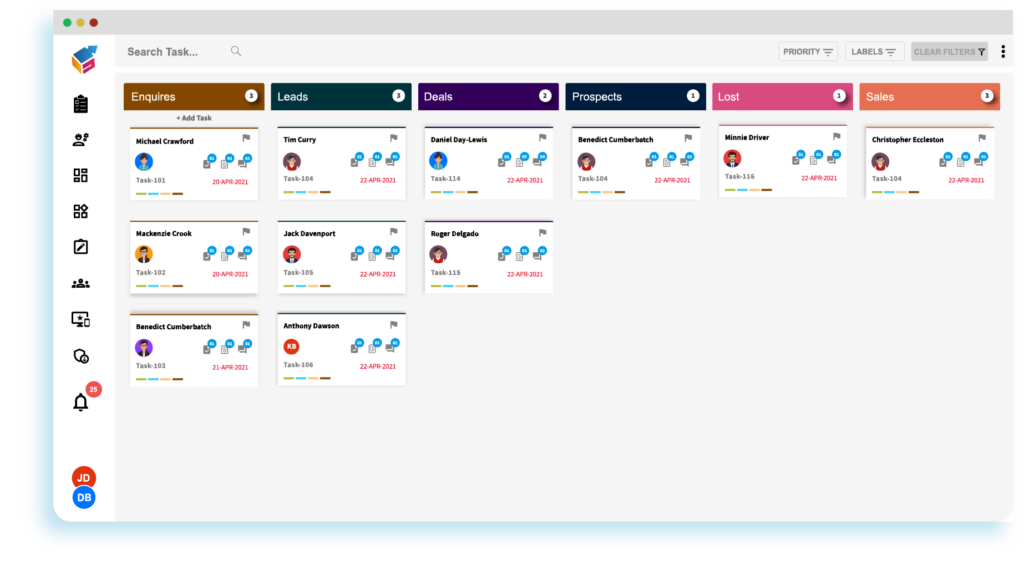
- Lead Nurturing Campaigns: Based on lead behavior and interactions, the CRM can trigger targeted email sequences to nurture leads over time. This can include sending educational content, case studies, and offers tailored to the lead’s interests.
- Customer Feedback Surveys: After a customer interaction, the CRM can automatically send out feedback survey emails. Responses can be tracked and recorded in the CRM, allowing businesses to gauge customer satisfaction and make improvements.
- Event Invitations: Companies hosting events, webinars, or workshops can send out personalized invitations through the CRM. The CRM can track RSVPs, follow-ups, and attendance, aiding in event planning and post-event engagement.
- Renewal and Upsell Emails: For subscription-based services, the CRM can trigger automated emails reminding customers about upcoming renewals or offering them relevant upsell opportunities based on their usage history.
- Cross-Selling Recommendations: By analyzing customer purchase history and preferences, the CRM can send targeted cross-selling emails suggesting complementary products or services.
- Drip Campaigns: Drip email campaigns can be set up in the CRM to send a series of timed and relevant emails to prospects or customers. These campaigns can provide value, educate, and nurture relationships.
These examples showcase how CRM email integration can enhance various aspects of customer interactions, sales, marketing, and support efforts by automating and optimizing email communications within the context of a larger CRM strategy.
CRM for sending email
Using a CRM (Customer Relationship Management) system for sending emails offers several advantages in managing customer interactions, marketing campaigns, and sales processes. Here’s how a CRM can be used effectively for sending emails:
- Centralized Communication: A CRM allows you to send and receive emails directly from within the system. This centralizes all communication, ensuring that all interactions are stored in one place and easily accessible by team members.
- Contact Segmentation: You can segment your contact list based on various criteria stored in the CRM, such as demographics, purchase history, or engagement level. This enables you to send targeted and relevant emails to specific groups of contacts.
- Personalization: Leveraging CRM data, you can personalize email content with recipients’ names, preferences, and purchase history. Personalized emails tend to have higher open and engagement rates.
- Automated Workflows: Set up automated workflows that trigger emails based on specific actions or events. For example, you can automatically send a welcome email to new leads or a thank-you email after a purchase.
- Drip Campaigns: Create drip email campaigns where a series of emails are sent over a predefined schedule. This is particularly useful for lead nurturing, onboarding sequences, or educational content delivery.
- Tracking and Analytics: Many CRM systems provide insights into email metrics such as open rates, click-through rates, and engagement. This helps you measure the effectiveness of your email campaigns and make data-driven improvements.
- Template Management: Maintain a library of email templates within the CRM for consistent branding and messaging. This simplifies the process of creating and sending emails.
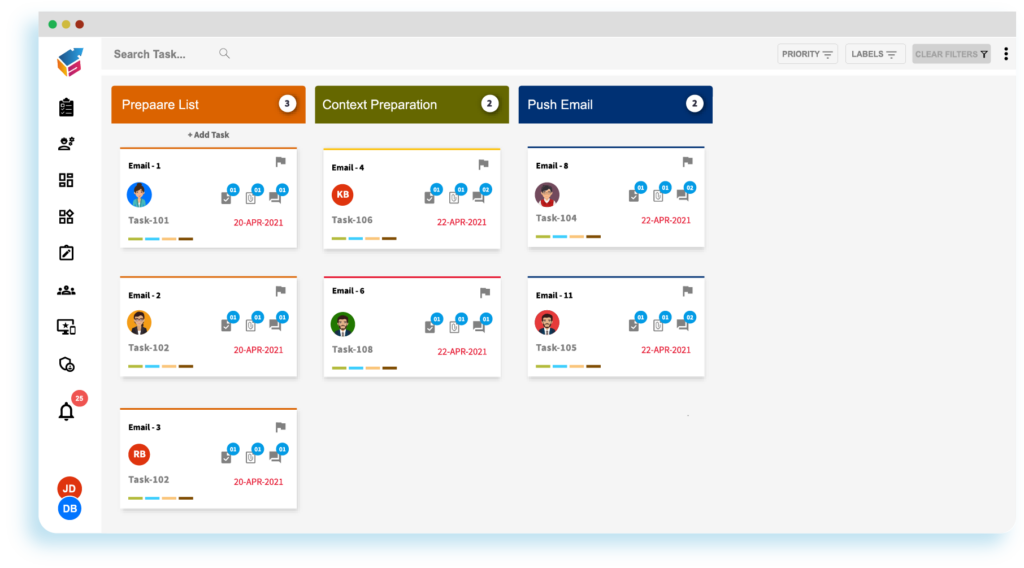
- Integration with Sales Processes: When integrated with your sales processes, the CRM can automatically trigger follow-up emails after specific sales interactions, helping keep leads warm and moving through the sales funnel.
- Event Management: If you’re hosting events, webinars, or workshops, a CRM can help manage event-related email communications, including invitations, reminders, and post-event follow-ups.
- Lead Scoring and Prioritization: Based on interactions and engagement, the CRM can assign lead scores, helping sales teams prioritize their outreach efforts.
- Customer Support: Use the CRM to manage customer support inquiries and send follow-up emails to ensure customer satisfaction.
- A/B Testing: Some CRM platforms offer A/B testing capabilities, allowing you to experiment with different subject lines, content, and calls to action to optimize email performance.
Remember that while a CRM can handle email sending, it’s important to comply with email marketing regulations, like GDPR or CAN-SPAM, and to focus on providing value to your recipients to maintain engagement and avoid being labeled as spam.
Get started with YoroCRM for email
Undoubtedly, sales representatives allocate a substantial amount of precious time to email, which could otherwise be dedicated to nurturing customer relationships and finalizing deals. With the incorporation of YoroCRM and its robust email integrations, the convergence of your CRM and email environment becomes a reality. This merger streamlines email procedures, fosters consistent experiences, and enhances overall operational efficiency.
Moreover, YoroCRM templates are tailor-made to evolve in tandem with your company’s growth. Begin by embracing YoroCRM software and harness its email integration to forge a connection between your CRM data and your inbox. Progress further by harnessing the capabilities of YoroCRM, seamlessly linking your CRM with pivotal business tools such as databases, calendars, chat platforms, accounting systems, and more. As your enterprise flourishes, consider integrating CRM software for lead generation and marketing automation, or embrace YoroCRM to fortify your customer support efforts.
Embark on your journey with a complimentary trial of YoroCRM today, immerse yourself in an on-demand demo, or request a personalized presentation to witness firsthand how YoroCRM can propel your company towards its business objectives.

